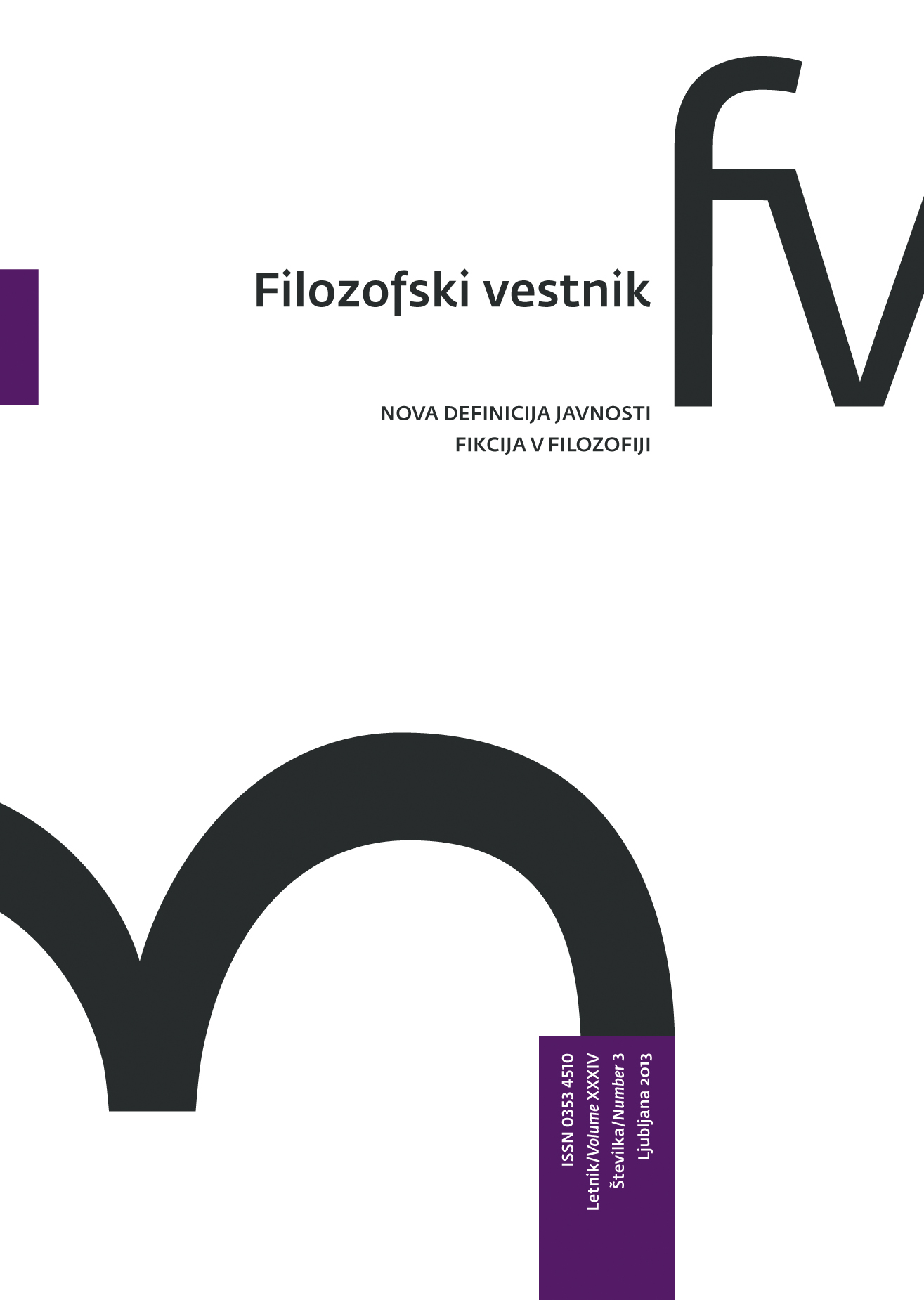Znova nič novega: Adorno, Deleuze, Beckett
Ključne besede:
cogito, govorica, izkušnja, jezik, jejezik, nič, novo, subjekt, vednost, znanostPovzetek
Članek pričenja s paradoksno Adornovo tezo o moderni kot dobi izgube novega. Iz te negativne teze o odsotnosti novega izpelje pozitivno konsekvenco za moderno pojmovanje novega: odsotnost novega implicira, da novo ni objekt vednosti in da je obenem pozitivno opredeljeno prav skozi to odsotnost vednosti o njem. Članek to izhodiščno nasprotje med novim in vednostjo v nadaljevanju analizira prek serije opozicij med dražljajem in jezikom, izkušnjo in izkustvom, subjektom in diskurzom, notranjim in zunanjim itd., pri čemer pokaže, da se novo ne umešča onkraj vednosti, ampak v presek nanizanih opozicij. Članek nadaljuje z analizo novega v luči Deleuzovih pojmovanj manjšinskosti in jecljanja, sklene pa s konceptualizacijo novega pri Beckettu, ki se mu uspe na absolutno singularen način izmakniti moderni usodi izgube novega.Prenosi
Podatki o prenosih še niso na voljo.
Prenosi
Objavljeno
2016-02-07
Kako citirati
Hajdini, S. (2016). Znova nič novega: Adorno, Deleuze, Beckett. Filozofski Vestnik, 34(3). Pridobljeno od https://ojs.zrc-sazu.si/filozofski-vestnik/article/view/4230
Številka
Rubrike
Fikcija v filozofiji
Licenca
Avtorji jamčijo, da je delo njihova avtorska stvaritev, da v njem niso kršene avtorske pravice tretjih oseb ali kake druge pravice. V primeru zahtevkov tretjih oseb se avtorji zavezujejo, da bodo varovali interese založnika ter da bodo povrnili morebitno škodo.
Podrobneje v rubriki: Prispevki





